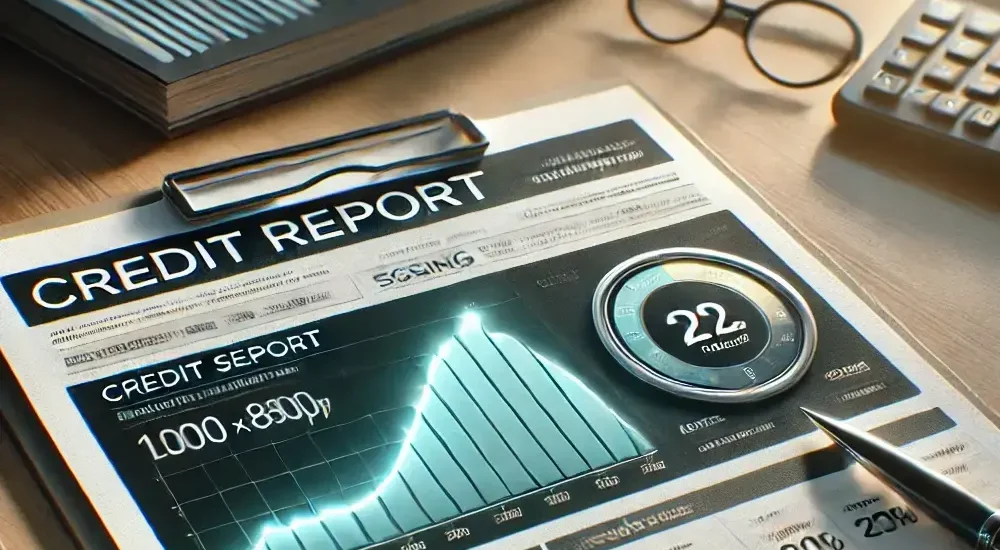10 Tips to Improve Your Credit Score Quickly
- November 10, 2024
- Posted by: Financeguidehub.com
- Category: Credit Scores

Your credit score plays a vital role in your financial life, impacting everything from loan approvals to interest rates and even job prospects. If you’re looking to improve your credit score, you’re not alone. Many people find that simple strategies and consistent actions can lead to noticeable improvements. In this article, we’ll explore practical steps to boost your credit score, helping you gain more financial freedom and achieve your goals.
1. Understand What Impacts Your Credit Score
Before diving into improvement strategies, it’s essential to understand what factors influence your credit score. The primary elements include:
- Payment History: On-time payments make up a significant portion of your score.
- Credit Utilization Ratio: The amount of credit you use compared to your limit.
- Length of Credit History: Older accounts positively impact your score.
- Credit Mix: A variety of credit types, like loans and credit cards, can help.
- New Credit Inquiries: Too many inquiries in a short time can temporarily lower your score.
Understanding these components will allow you to target the areas that need the most attention.
2. Pay Your Bills on Time
Paying bills on time is one of the most effective ways to improve your credit score. Late payments can significantly harm your score, and consistent, timely payments will build a positive credit history.
- Set Reminders: Use apps or set reminders on your phone for due dates.
- Automate Payments: Many experts, like those at Bankrate, suggest automating payments to avoid missing due dates.
By ensuring timely payments, you’ll boost your payment history—a critical factor in your overall credit score.
3. Lower Your Credit Utilization Ratio
Credit utilization is the percentage of your credit limit that you’re using, and keeping this ratio low is essential for a good credit score.
- Aim for 30% or Lower: Try to use less than 30% of your total available credit.
- Pay Off Balances Frequently: Consider making multiple payments throughout the month to keep your balance low.
Reducing your credit utilization can provide a quick boost to your score, especially if you tend to carry a high balance.
4. Avoid Opening New Accounts Frequently
Opening multiple credit accounts in a short period can lower your score due to hard inquiries and a shorter average account age. NerdWallet recommends spacing out new credit applications to avoid negative impacts.
- Apply Only When Necessary: Avoid applying for new credit unless it’s essential.
- Consider the Long Term: Focus on improving existing accounts rather than opening new ones.
5. Don’t Close Old Credit Accounts
Older accounts contribute positively to your credit history length, so it’s best to keep them open, even if you don’t use them frequently.
- Maintain Older Accounts: Keep accounts open to maintain a long credit history.
- Consider Minimal Use: Occasionally use these accounts for small purchases to keep them active.
Closing old accounts can shorten your credit history and potentially lower your score, so keep them open unless there’s an annual fee.
6. Check Your Credit Report for Errors
Mistakes on your credit report can damage your score. According to The Motley Fool, it’s essential to review your report regularly for any inaccuracies.
- Obtain Free Reports: You’re entitled to a free annual credit report from each major bureau (Equifax, Experian, and TransUnion).
- Dispute Errors: If you find incorrect information, file a dispute with the credit bureau to correct it.
Regularly checking your credit report ensures that only accurate information is impacting your score.
7. Diversify Your Credit Mix
A mix of credit types (e.g., credit cards, installment loans, mortgages) can benefit your score, as it shows lenders that you can handle various forms of credit.
- Consider Different Types: If possible, diversify with a small personal loan or credit card.
- Use Responsibly: Only take on new credit if you’re confident you can manage it.
Kiplinger advises that while a diverse credit mix can help, it’s not worth adding new debt solely to improve your score.
8. Become an Authorized User on Another Account
If a friend or family member has a long-standing account with a good payment history, becoming an authorized user can boost your score.
- Choose Someone Responsible: Make sure the primary account holder has a strong credit history.
- Understand the Risks: If the primary account holder misses payments, it could negatively impact your score.
Many experts at CNBC Personal Finance note that authorized users can benefit from the account’s positive history without having direct responsibility for the debt.
9. Use a Secured Credit Card to Build or Rebuild Credit
If you’re new to credit or looking to rebuild, a secured credit card can help. These cards require a deposit, which typically becomes your credit limit.
- Start Small: Use a secured card for small purchases and pay them off in full each month.
- Upgrade Over Time: After proving responsible usage, you may be eligible for an unsecured card.
Bankrate recommends secured cards as a stepping stone to establish or repair credit.
10. Be Patient and Consistent
Improving your credit score takes time, so it’s important to stay consistent with good financial habits.
- Monitor Progress: Keep an eye on your score over time to see improvements.
- Stay Disciplined: Avoid taking shortcuts, as quick fixes are often temporary.
Building a strong credit score is a gradual process, but steady improvement will lead to lasting benefits.
Improving your credit score doesn’t happen overnight, but by following these ten strategies, you can make steady progress toward a healthier credit profile. Start by focusing on payment history and credit utilization, and gradually incorporate the other tips. Ready to take control of your financial future? Check out our guide to budgeting for more insights on managing your money effectively.

